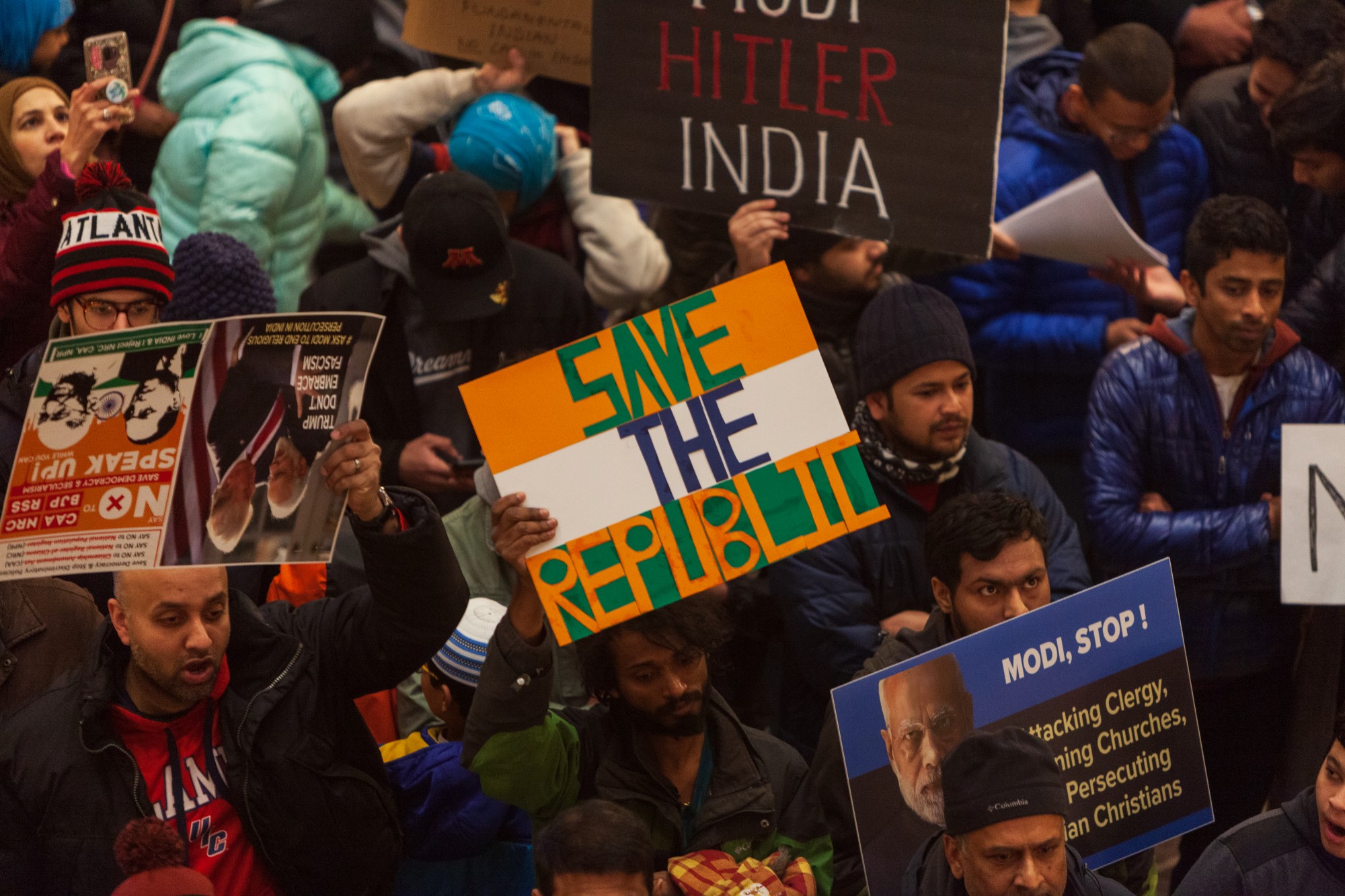Hundreds of Muslim Indian Americans flocked inside the Minnesota State Capitol on Sunday to protest India’s new bill that grants Indian citizenship to religious minorities from three neighboring countries — excluding Muslims.
Protesters of all ages, including University of Minnesota students, gathered inside the Capitol building with signs showing solidarity in human rights and criticizing India’s passage of the bill.
The Citizenship Amendment Act was passed last month and offers citizenship to non-Muslims that escaped from religious persecution in nearby countries like Afghanistan, Pakistan and Bangladesh. This prompted protests both in India and worldwide, with St. Paul’s protest happening simultaneously with others across the United States.
The St. Paul protest was organized by a group of Indian Muslims and occurred on India’s Republic Day. During the gathering, various speakers shared their experience of being an Indian Muslim and encouraged the crowd to fight for human rights.
Sadia Tarannum, the St. Paul protest lead organizer, said she’s been trying to organize the event for more than a month.
“The need was so big,” Tarannum said. “I know how harmful that it was if this goes into effect, how bigger effect it will have on not just the immigrants sort of coming in but also the Muslims that are citizens in India. Democracy only works when common citizens show what we feel about it.”

In India’s 1951 census, Assam, a northeastern state of India, began registering “Indian” citizens and singling out any Muslim foreigners. Current Indian Prime Minister Narendra Modi is said to have brought back the decades-old anti-Muslim sentiment.
University sociology business student Arshia Hussain, whose parents both migrated to the U.S. from India, shared her father’s story of living with trauma and her advocacy for human rights.
“Slowly as I was growing up, [my father] would give me small pieces of stories of the trauma that he endured that he continues to live with today,” Hussain said. “I want to come to memory his story but also talk about that is not the only story. Stories like that are continuing to happen. It happened 30 years ago and it is still happening now.”
Organizer Akheel Mohammed, who is also the vice president of the Indian American Muslim Council, said that it was a day to celebrate India’s Republic Day as well as bring attention to the issues that are happening in India right now.
Tarannum said the community would like to work with the Indian Embassy to make sure that those in the U.S. still are able to go back to see their family in India for future steps.

The event ended following the attendees chanting outside in front of the Capitol building in the chilling weather.
“I think the main thing that came out today was that everybody came together to stand up for human rights,” Tarannum said. “I think it is amazing, and that was what gives me hope that … we can still change this.”








